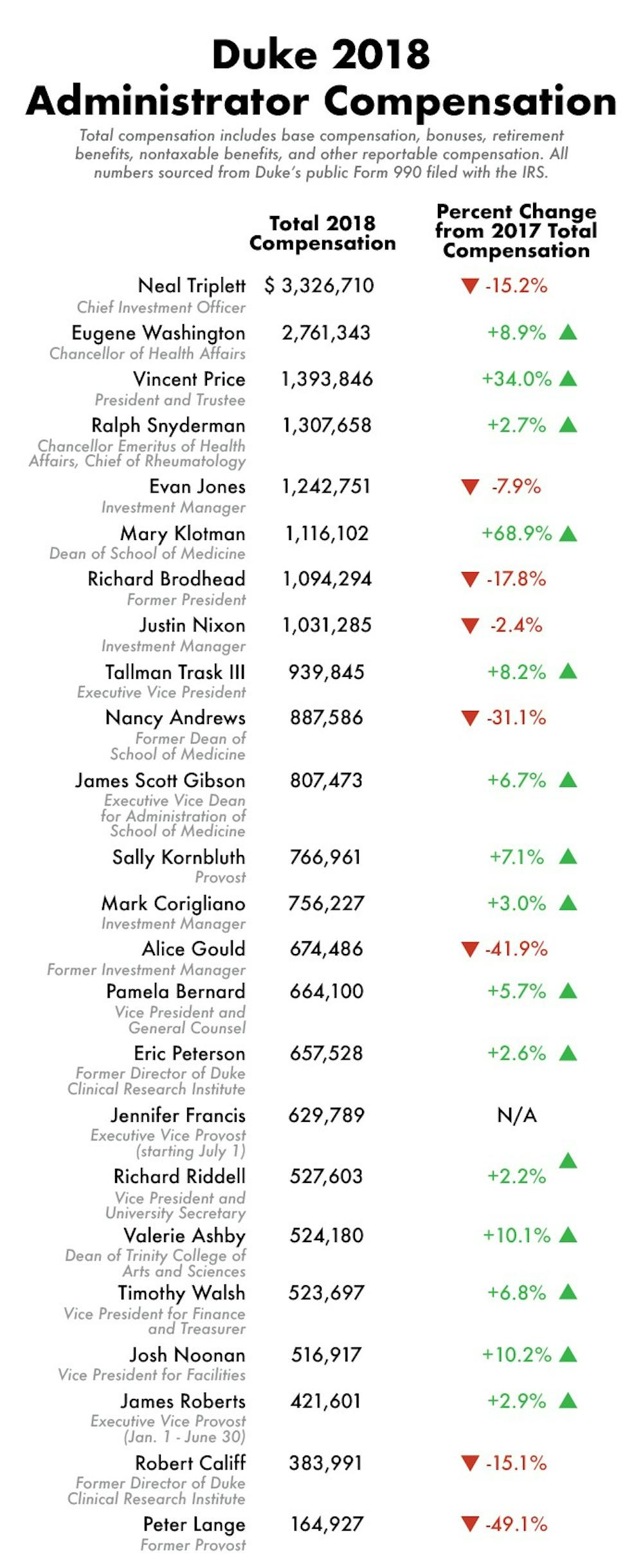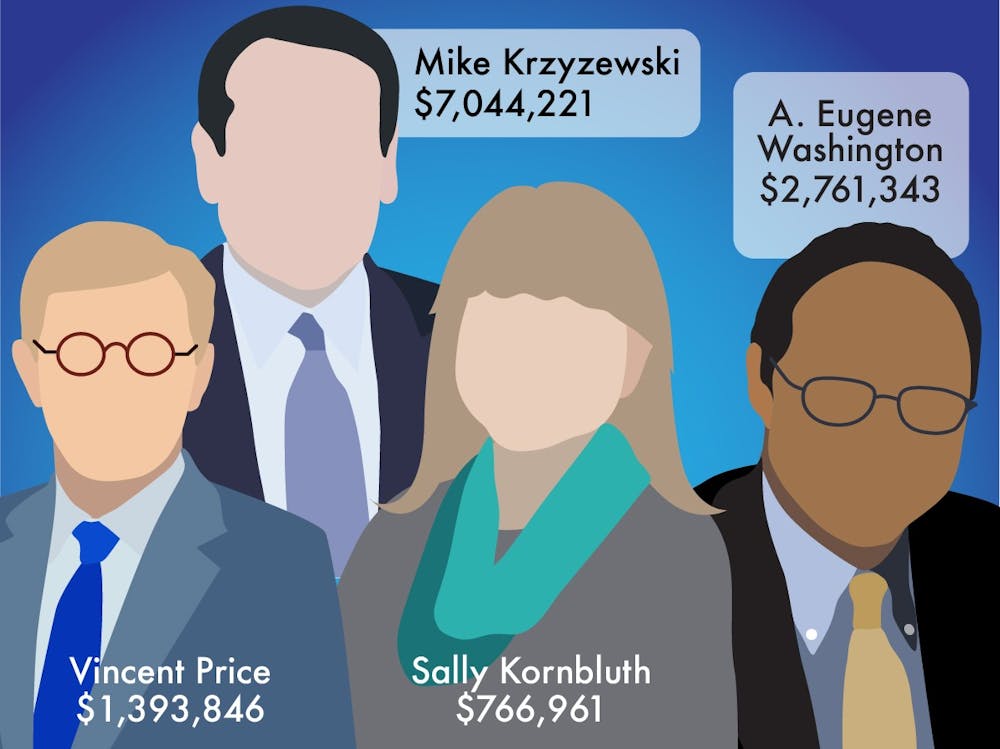For his first full year on the job, President Vincent Price made nearly $1.4 million.
Price and 11 other former and current key employees at Duke accrued more than $1 million in 2018, according to Duke’s 2018 990 tax form. Unlike in 2017, when Price ranked ninth out of non-athletics employees in compensation, he was the third-highest-paid in 2018, after Neal Triplett, president and CEO of the Duke University Management Company (DUMAC), and Chancellor of Health Affairs A. Eugene Washington.
Total compensation includes base salary, deferred compensation, retirement contributions, reimbursed expenses, bonuses, other benefits and contractual agreements, wrote Michael Schoenfeld, vice president for public affairs and government relations, in an email.
Duke provides bonuses for University, Duke University Health System and DUMAC executives, according to an email Schoenfeld sent to The Chronicle in 2019.
“The bonuses are based on measurable goals and performance, and the amount and final approval comes from the respective governing board (Duke Board of Trustees, DUMAC board of directors or DUHS board of directors),” he wrote.
Schoenfeld wrote that Duke does not comment on a specific employee’s compensation.
All four listed athletics key employees were compensated more than $1 million, with men’s basketball head coach Mike Krzyzewski making just upwards of $7 million.
Total compensation for Price and Mary Klotman, dean of the School of Medicine—who both started their respective roles July 1, 2017—considerably increased between 2017 and 2018. Price’s 2017 compensation was slightly more than $1 million, and Klotman’s compensation jumped from $660,000 in 2017 to $1.1 million in 2018.
The compensation of their predecessors, Richard Brodhead and Nancy Andrews, decreased, with Brodhead still accruing more than $1 million and Andrews earning $890,000.
The only former key employee whose pay increased in 2018 was Eric Peterson, former director of Duke Clinical Research Institute.


Although compensation for most athletics key employees increased between 4% and 5%, Krzyzewski made 3% less, having earned $7.25 million in 2017.
Current key non-athletics employees whose pay decreased from 2017 to 2018 were all employees of DUMAC. DUMAC oversees the University’s multi-billion dollar endowment and the Duke Endowment.
Compensation for Triplett, president and CEO of DUMAC, was $3.3 million in 2018, compared to almost $4 million in 2017. Investment managers Evan Jones and Justin Nixon were also compensated less in 2018.
Executive Vice Provost Jennifer Francis started in the position July 1, 2018, so she wasn’t listed in Duke’s 2017 form. Her predecessor, James Roberts, had an increase in compensation from $409,601 in 2017 to $421,601 in 2018.
Graphics by Selena Qian. Interactives by Stefanie Pousoulides.
Editor's note: The headline of this article has been updated to clarify that Price's pay increase came during his first full year in office.
Get The Chronicle straight to your inbox
Signup for our weekly newsletter. Cancel at any time.

Stefanie Pousoulides is The Chronicle's Investigations Editor. A senior from Akron, Ohio, Stefanie is double majoring in political science and international comparative studies and serves as a Senior Editor of The Muse Magazine, Duke's feminist magazine. She is also a former co-Editor-in-Chief of The Muse Magazine and a former reporting intern at PolitiFact in Washington, D.C.

